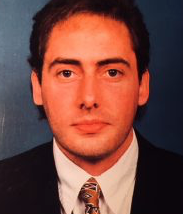- News to celebrate! - 1st March 2026
- Bombs away! - 28th February 2026
- Massaging the truth - 27th February 2026
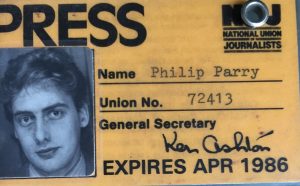
Here our Editor Phil Parry looks at a possible future controversy for Wales’ biggest broadcaster after The Eye showed how it has been engulfed by a series of scandals.
In the past he has described how he was helped to break into the South Wales Echo office car when he was a cub reporter, recalled his early career as a journalist, the importance of experience in the job, and making clear that the ‘calls’ to emergency services as well as court cases are central to any media operation.

He has also explored how poorly paid most journalism is when trainee reporters had to live in squalid flats, the vital role of expenses, and about one of his most important stories on the now-scrapped 53 year-old BBC Cymru Wales (BBC CW) TV Current Affairs series, Week In Week Out (WIWO), which won an award even after it was axed, long after his career really took off.
Phil has explained too how crucial it is actually to speak to people, the virtue of speed as well as accuracy, why knowledge of ‘history’ is vital, how certain material was removed from TV Current Affairs programmes when secret cameras had to be used, and some of those he has interviewed.

Earlier he disclosed why investigative journalism is needed now more than ever although others have different opinions, and how information from trusted sources is crucial at this time of crisis.
BBC TV star Alex Jones has landed her own show on BBC Cymru Radio Wales (BBC CRW) and I trust she will not have an affair with the station’s Editor Colin Paterson as did a previous presenter.
BBC Cymru Wales Today (BBC C WT) and radio host Lucy Owen conducted a contentious liaison with Mr Paterson which caused huge disquiet among staff, as his officials had also commissioned a programme she fronted, and they believed this was a potential conflict of interest.
So far the “Sunday Morning with…” slot Ms Jones is to anchor, has been presented by a series of high-profile Welsh names which have included Keeping Faith star Eve Myles, controversial celebrity Carol Vorderman, athlete Colin Jackson, actress Suzanne Packer and broadcaster Anna Ryder Richardson.

Mrs Owen has also been one of these figures in the past, and in the context of her affair, the ‘predictive search results’ in ‘Google’ for the personality and her husband were, perhaps, prescient. They said ‘Lucy Owen Rhodri Owen split’, and knowledge of the affair was widespread in media circles.
Her one-time lover Mr Paterson even showed his approval of a message of hers on Twitter which declared that she had taken her first commute to the new BBC Cymru Wales (BBC CW) building in Cardiff. She described how she loved it, saying: “I’ve always been a fan of X2 (a bus service) now I get to take it to work”, ‘hashtagging’ ‘publictransport’, and sending her tweet to BBC CW.
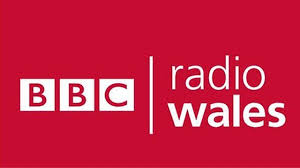

The fact that Ms Jones has been chosen to present her old Sunday morning show on BBC CRW, may not bode well, although she appears enthused by the prospect, declaring: “I’m so excited to get my headphones back on for BBC Radio Wales and play some of my favourite songs”. Mr Paterson also seems animated, proclaiming exuberantly: “I’m over the moon that she’s joining the line-up here at BBC Radio Wales”.
But BBC CRW has not been without its problems. Audience figures have slumped and having programmes hosted by famous figures like Ms Jones could be part of the strategy by Mr Paterson to halt the disastrous decline. He has described the new line up he put in place as a “creative challenge” and the figures have made the scale of the challenge clear, revealing that his station had an average weekly audience of just 317,000 listeners in one three month period. Officials have, too, given questionable responses to queries about the BBC CRW listening figures. One listener was told: “We are not… obliged to supply information…”.
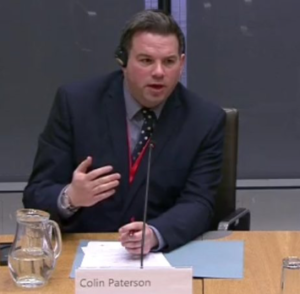
The comparison of BBC CRW with the services in other areas is stark. BBC Radio Ulster/Foyle (BBC RU/F) remains the most popular radio station in Northern Ireland.
Among the changes that were announced in a bid to stem the tide, was a new breakfast programme hosted by different presenters on Monday to Thursday, to Fridays and Saturdays.
But a former day time programme host, who was called on Wikipedia one of the main presenters on BBC CRW at the beginning, Mike Flynn, was deeply unimpressed.

He told The Eye: “Paterson has not responded to my demands to resign or indeed had the decency to discuss where this strategy is leading. He is a public servant not some cavalier local businessman running a chip shop – £18 million in the kitty and the listeners are deserting in droves”. Mr Flynn was equally angry at revelations of the affair, and said to The Eye: “If Paterson has been having an affair with a Wales Today and Radio Wales presenter it brings his management skills in to question and he needs to be suspended immediately.”
But in May 2017 Mr Paterson proudly underlined his changes saying: “I’m so happy we’ve managed to secure a strong and varied set of new voices for the station”.
 Yet his new morning programme on BBC CRW was described by listeners as “awful”, “abysmal“, and “one of the worst programmes I have heard in a long time”.
Yet his new morning programme on BBC CRW was described by listeners as “awful”, “abysmal“, and “one of the worst programmes I have heard in a long time”.
One contributor to the Digital Spy online forum has said in the past ‘Breakfast with Claire Summers‘: “… sounds like a community radio station bloody awful. Woman presenter has a grating voice and is fluffing her lines. Morning news programme should contain news”.
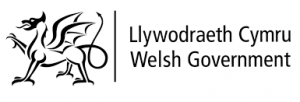
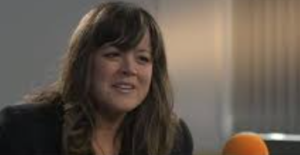
The Deputy Economy Minister in Wales Lee Waters MS has said publicly he is worried by what is happening and that there should be ‘serious’ and ‘challenging’ journalism, objecting to the decision to drop the Good Morning Wales (GMW) programme.
Mr Waters (himself a former producer on GMW) said the changes meant there would be “no serious news programme” broadcast at breakfast time. His comments echo statements on Twitter when he has called for more ‘challenging’ journalism.
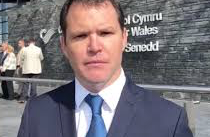
He quoted approvingly a call for “… serious, challenging journalism and consistently high-quality radio programmes which make politicians nervous…”
He has tweeted to BBC CW after the new schedule was announced: “Really concerned about this – absolutely nothing against Claire, but plenty against magazine format. We need agenda-setting news & scrutiny in this slot. You’re a national public service broadcaster. Where else are we going to get it?”. The objections of Mr Waters have now been adopted by the Welsh Government (WG).
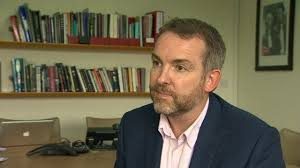
He has expressed concern at the changes too to Ofcom, which is the external regulator of the BBC’s television, radio and on-demand programmes. He said: “We feel that as a public service broadcaster, with a duty under its latest charter to reflect the nations, that they have an obligation to provide serious news and scrutiny. Just as BBC Scotland and BBC network do”.
But Mr Paterson’s manager, BBC CW Director Rhodri Talfan Davies has been in the firing line as well.

It has been disclosed on The Eye that Mr Davies’ staff were angry they did not move into their new £100 million headquarters before the lockdown, and, it’s understood, may not now fully do so until the Autumn (more than two and a half years following it being handed over), an appalling mistake was made on his flagship TV news programme, his organisation refused an interview with me even though he said BBC CW would be “more accessible”, and popular programmes have been axed while another which WAS commissioned, has been described as “embarrassingly unfunny”.
Yet even amid these miscalculations he announced another round of job cuts using the form of management-speak which is fashionable today but needs interpreting.
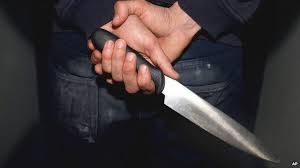
Mr Davies told reporters recent events were to blame for a fiscal crisis, saying: “Managing these new financial challenges inevitably requires some hard choices but we will work closely with colleagues across BBC Wales to try to minimise the impact of the changes“. It has emerged that 60 posts are being axed at BBC CW as officials try to save £4.5 million this financial year (representing about six per cent of the workforce), and live events (including most live sport) are to be cancelled.
Yet these disturbing facts are set against an extremely worrying backdrop, and among them is the fact that an extraordinary political row developed with his organisation at its heart.

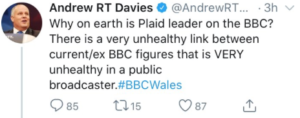 The former leader of the Conservatives in the Senedd Cymru/Welsh Parliament (SC/WP), Andrew RT Davies, MS, accused, on social media, BBC CW of a “link” with Welsh nationalist party Plaid Cymru (PC) and that it was “unhealthy”. But in a highly unusual move, Mr Davies defended on Twitter a controversial decision to ask the PC leader on to a programme discussing major issues, saying the Welsh Conservatives had not accepted the invitation. Yet in another tweet Mr Davies said he stood by his original point. The unbelievable spat was soon after growing concern about figures who have joined the corporation from PC, and those that have moved in the other direction.
The former leader of the Conservatives in the Senedd Cymru/Welsh Parliament (SC/WP), Andrew RT Davies, MS, accused, on social media, BBC CW of a “link” with Welsh nationalist party Plaid Cymru (PC) and that it was “unhealthy”. But in a highly unusual move, Mr Davies defended on Twitter a controversial decision to ask the PC leader on to a programme discussing major issues, saying the Welsh Conservatives had not accepted the invitation. Yet in another tweet Mr Davies said he stood by his original point. The unbelievable spat was soon after growing concern about figures who have joined the corporation from PC, and those that have moved in the other direction.

The extraordinary delay in opening the new HQ for BBC CW in Cardiff’s Central Square has also been attacked. It could cost the licence fee-payer hundreds of thousands of pounds in bills running two buildings. This is at a time when staff costs and capital expenditure are under review right across the corporation, as well as with, now, jobs going.
After the keys to the new building were formally handed over in April 2018, Mr Davies said: “Central Square is all about opening up… the fantastic location means that we’ll be more accessible”.

But he was not ‘accessible’ to me after working at BBC CW for 23 years. I was told initially by the Press Office in a lengthy email exchange over more than six months, that Mr Davies would be available for interview. Question areas were provided, and the official was informed the interview could be conducted over the telephone. I was then instructed that an interview would not, in fact, be granted.
For the terrible mistake on BBC Cymru Wales Today (BBC CWT) he also bears ultimate responsibility. Programme-makers used a picture of Brighton Pavilion during coverage of the start of the hugely important Muslim month of Ramadan mistaking it for a mosque, and the error was then featured in the Brighton Argus. One Twitter user complained: “BBC Wales showing a picture of the Brighton Pavilion and getting it confused for a mosque when talking about Ramadan is kind of f****d?”. Another wrote furiously: “Not happy they’ve used a shot of Brighton Pavilion as though it’s a mosque (presumably)”.
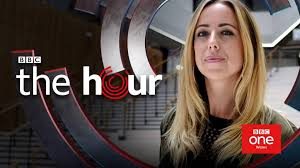
The commissioning skills of his senior executives have been no less alarming. One programme called ‘Pitching In’, was described by viewers in the Western Mail as “unforgivable” and an “insult to Wales”. A reviewer said it was “so embarrassingly unfunny I felt my toes curling”. Some do not believe the programme should ever have been allowed to go out.
There has, too, been a failure in the scrapping of popular existing programmes made by BBC CW.
 The TV debate series The Hour was axed after a year, and at an enormous cost to the licence fee-payer, following the controversial decision to close the 53 year-old award-winning Welsh TV Current Affairs programme Week In, Week Out (WIWO), which I presented for 10 years. Yet viewers had described The Hour on the internet, as “necessary” and even BBC CW officials had admitted to The Eye it “capture(d) the mood of the nation”.
The TV debate series The Hour was axed after a year, and at an enormous cost to the licence fee-payer, following the controversial decision to close the 53 year-old award-winning Welsh TV Current Affairs programme Week In, Week Out (WIWO), which I presented for 10 years. Yet viewers had described The Hour on the internet, as “necessary” and even BBC CW officials had admitted to The Eye it “capture(d) the mood of the nation”.
This came after the contentious resolution to get rid of WIWO despite the fact that it had won a clutch of awards, including at the Royal Television Society, BAFTA Cymru, and BT Wales. It even secured an award after it had been formally closed. The programme had also been used as a springboard for Panorama episodes, and one of the journalists’ investigations still features near the top of an internal BBC CW document recording the highest viewing figures.
 Perhaps listening figures too will be better at BBC CRW now Ms Jones is hosting a programme – as long as she does not have an affair with the station’s Editor as one of her predecessors did…
Perhaps listening figures too will be better at BBC CRW now Ms Jones is hosting a programme – as long as she does not have an affair with the station’s Editor as one of her predecessors did…
Tomorrow – The Eye reveals more disturbing details about the background of a controversial Welsh businessman who threatened Phil.
Phil’s memories of his extraordinary 37-year award-winning career in journalism (including 23 at the BBC) as he was gripped by the incurable disabling neurological condition Hereditary Spastic Paraplegia (HSP), have been released in a major book ‘A GOOD STORY’. Order the book now!The picture doubles as a cut-and-paste poster!









